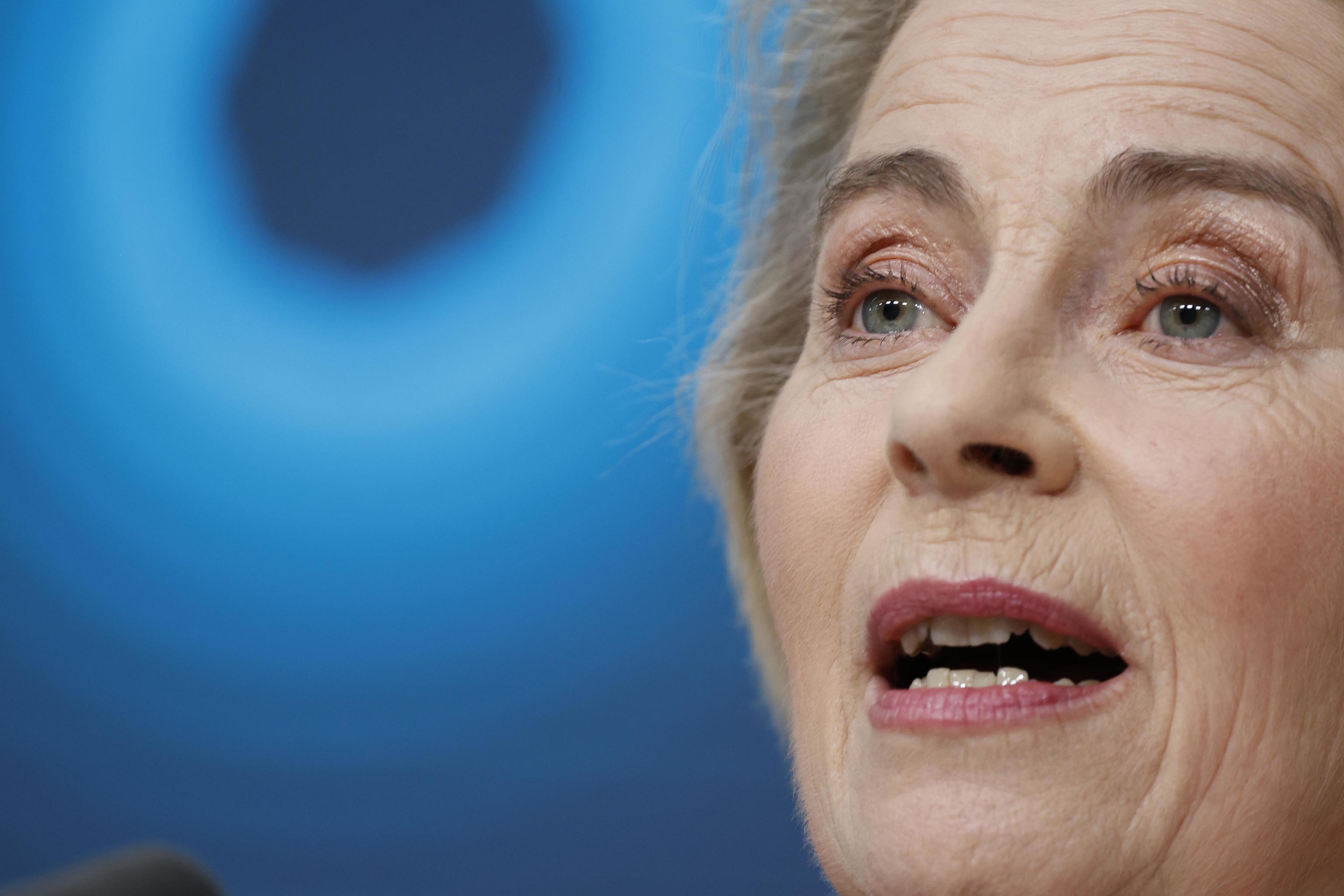Brussels is desperately looking for a way to make use of the frozen Russian assets. Specifically, out of 185,000 million euros, with which it intends to provide Ukraine with a loan of 140,000 million.
The EU, which had so far avoided resorting to this money at all times, argues that it is not a confiscation and that it has some time to move forward with the measure because its goal is to start using that amount from April 2026. However, many countries and even institutions believe that if it is not a form of confiscation, it closely resembles one. Considering the community rhythms and that the measure could require the support of each country and even have to go through national parliaments, the reality is that there is indeed urgency. A lot.
Where do these funds come from?
From assets of the Central Bank of Russia that have already been converted into cash and are deposited in Euroclear, a financial securities clearing and settlement company based in Brussels. Currently, that amount stands at 175,000 million, and the EU hopes that in the coming years it will reach the mentioned 185,000 million. In no case is it money from private agents, whether companies, oligarchs, or otherwise. That money is off-limits.
How does the EU plan to use these funds?
The European Commission's proposal is to "instruct Euroclear to, instead of investing its cash balances in the European Central Bank (ECB), invest them in a EU debt instrument," explain community sources. And Brussels, in turn, would grant a loan to Ukraine to finance the enormous expenses demanded by the war. The credit would have several conditions. First, it would be in tranches. The EU would also require the country to prioritize purchases from Europe with these funds. And third, when Russia takes over the reconstruction costs of Ukrainian territory, the authorities of this country would be obliged to reimburse the money to Brussels so that Europe, in turn, would return it to Vladimir Putin. This point is crucial.
Because, according to Brussels, the last condition shows that there is no confiscation. They argue in the community capital that the money would only be borrowed for a time. However, this does not convince Belgium, Luxembourg, the European Central Bank, or even France. It is also not clear whether Putin will agree to take on those reconstruction costs when peace is signed.
Are there precedents for something similar?
For example, Iraq had to pay 52.4 billion dollars (which today would be over 100 billion euros) for its occupation of Kuwait in 1990. But most of that money came from the sale of Iraqi oil. The revenues were deposited in a UN account, which decided how much would go to Kuwait and how much would be spent on behalf of Iraq (that country was not authorized to freely dispose of its revenues).
Why is Belgium particularly concerned?
Because the headquarters of Euroclear, as mentioned, are in the capital of the country. Belgian Prime Minister Bart De Wever is convinced that if the process continues, Putin will take the country to international courts, which is why he demands "guarantees," "mutualization," and "shared risk." In other words, turning the entire EU into both a shield and a target for possible legal actions and any other measures that Russia may take. Belgium also points out that confiscating Russian money goes against the legal security that Europe has always advocated, a point also shared by the ECB. It should also be noted that Moscow could nationalize the assets of European companies still operating in the country, such as the Italian banks UniCredit and the Austrian Raiffeisenn, the Swiss food company Nestlé, and the German supermarket company Makro. And the euro could also be affected as a reserve currency. Of course, the alternative could be that Russia conquers Ukraine and starts threatening the Baltic States, which are EU and NATO members. But that would call into question not so much the role of the euro, but its very existence.
Firstly, asking the 27 countries that make up the EU to guarantee that loan. This way, the "limited" risk that sanctions on the Kremlin may be lifted without Moscow having paid reparations and Europe having to face the credit would be covered, as explained in Brussels, where this is seen as another gesture to show that there is no confiscation. However, this is a very significant step that may even have to go through national parliaments. The European Commission points out that it would "make a lot of sense" to base the guarantee "on Gross National Income," that is, on the countries. All this will be discussed at the end-of-month European Council, and despite the difficulties, many countries will push for it to move forward.
What happens if the measure does not succeed?
"The alternative would be for national budgets, and therefore European taxpayers, to finance Ukraine, and we do not believe that any member state would be satisfied with that," explain diplomatic sources. Because American aid to Ukraine is running out. Although Donald Trump has maintained economic and military cooperation programs with Kiev, there are no clear signs that he will renew them or at least maintain their size. Also, because Brussels considers the Ukrainian army the first line of European defense.
